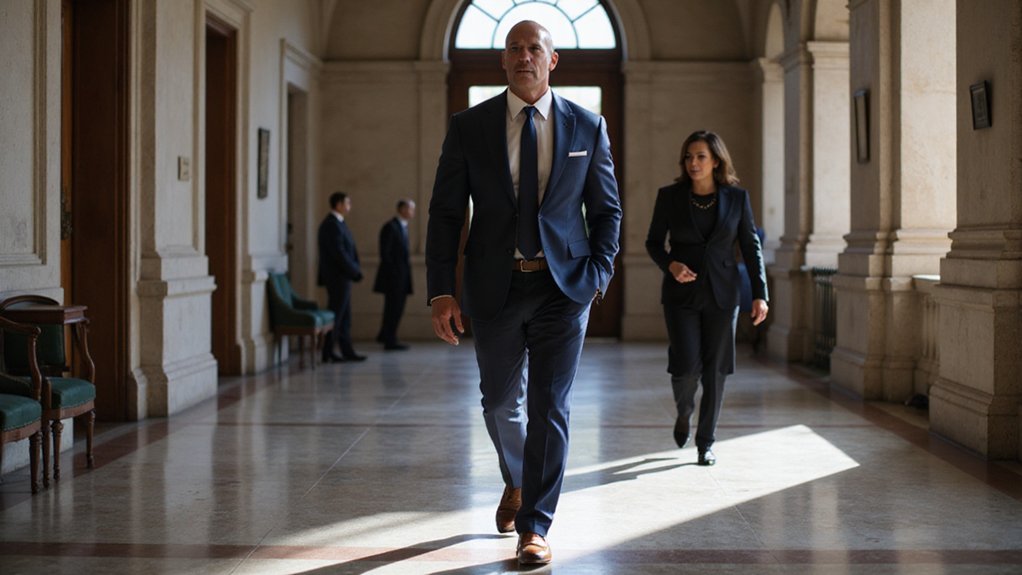The spectacle of democracy has apparently evolved to the point where a former WWE wrestler commands better odds than a sitting Vice President in early speculation about the 2028 Democratic nomination. According to Polymarket, the decentralized prediction platform where political futures trade like commodity contracts, Dwayne “The Rock” Johnson currently holds a 7% probability of securing the Democratic nomination—a marginal but symbolically significant lead over Kamala Harris‘s 5% stake.
This peculiar market dynamic reflects more than mere celebrity fascination. Johnson’s fourth-place ranking behind Gavin Newsom, Alexandria Ocasio-Cortez, and Pete Buttigieg suggests traders perceive genuine political viability in his centrist positioning and crossover appeal. His 392 million Instagram followers represent a constituency larger than most nations, while internal polling reportedly showed 46% support for a potential 2024 run—numbers that would make seasoned politicians salivate.
The prediction market’s assessment diverges sharply from traditional political calculus, where Harris might reasonably expect frontrunner status given her current office and party infrastructure access. Yet her fifth-place position illuminates lingering questions about her electoral appeal and the Democratic establishment‘s hold on nomination processes. Polymarket traders, operating with real financial stakes (Johnson shares currently trade at 7 cents), aggregate sentiment through monetary commitment rather than polling responses. The platform’s algorithmic bonding curves automatically adjust pricing based on trading activity, creating real-time odds that reflect collective market sentiment about each candidate’s viability.
Financial stakes reveal what polling conceals: traditional political hierarchies crumbling under quantified market skepticism.
Johnson’s political evolution from entertainment to serious contention exemplifies the blurring boundaries between celebrity culture and governance. His independent registration and Biden endorsement history signal calculated positioning for broader appeal—a strategy that apparently resonates with prediction market participants betting on disrupted traditional alignments. Johnson was approached by multiple parties regarding a potential presidential run in 2023, demonstrating cross-party recognition of his electoral potential.
The platform’s own political connections underscore this intersection’s legitimacy: 1789 Capital’s investment and Donald Trump Jr.’s advisory board position highlight prediction markets‘ growing influence in political discourse.
While these early odds represent speculative positioning rather than voter intention, they capture something conventional polling might miss—the market’s assessment of disruption probability.
Whether Johnson’s entertainment-to-politics trajectory mirrors successful precedents or represents expensive political theater remains unclear. What’s certain is that democracy’s commodification through prediction markets has created spaces where traditional hierarchies face quantified skepticism, and former wrestlers can trade ahead of Vice Presidents in the grand bazaar of political speculation.







